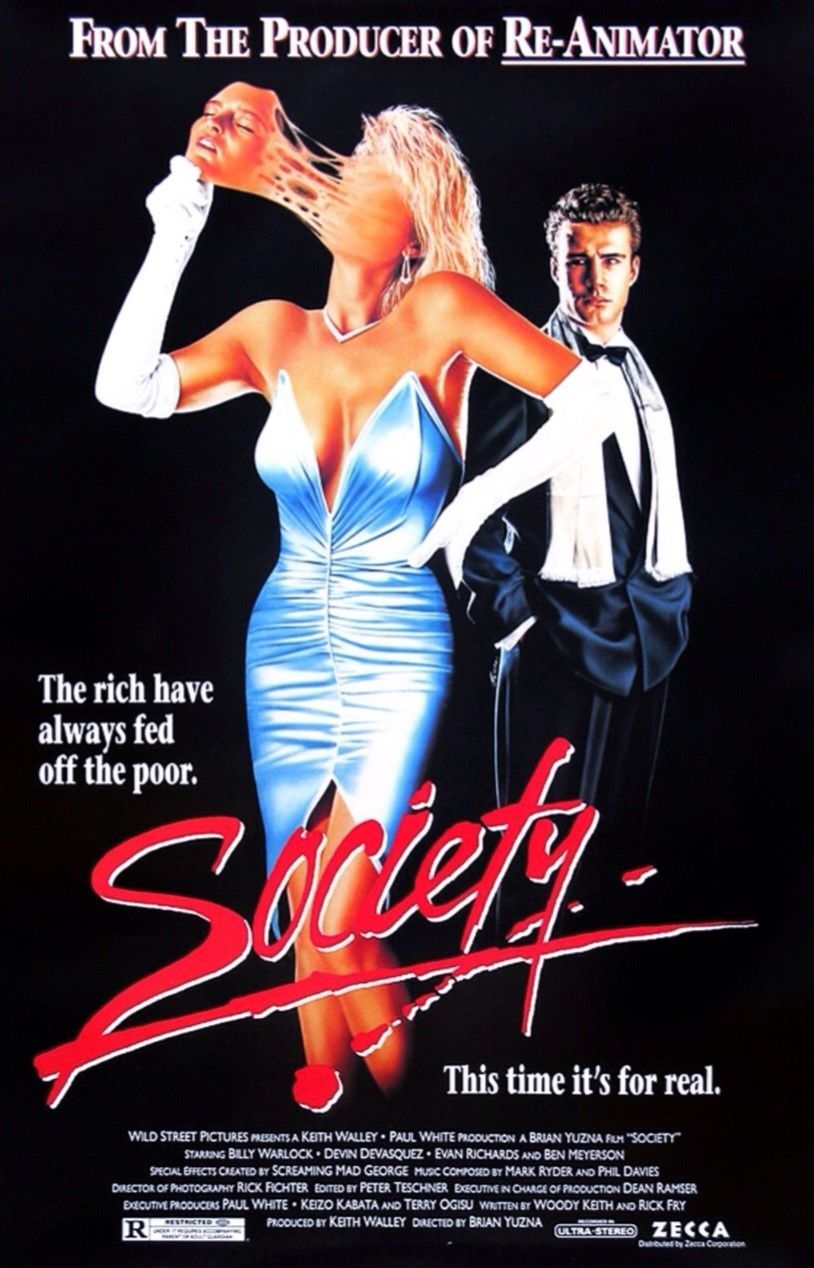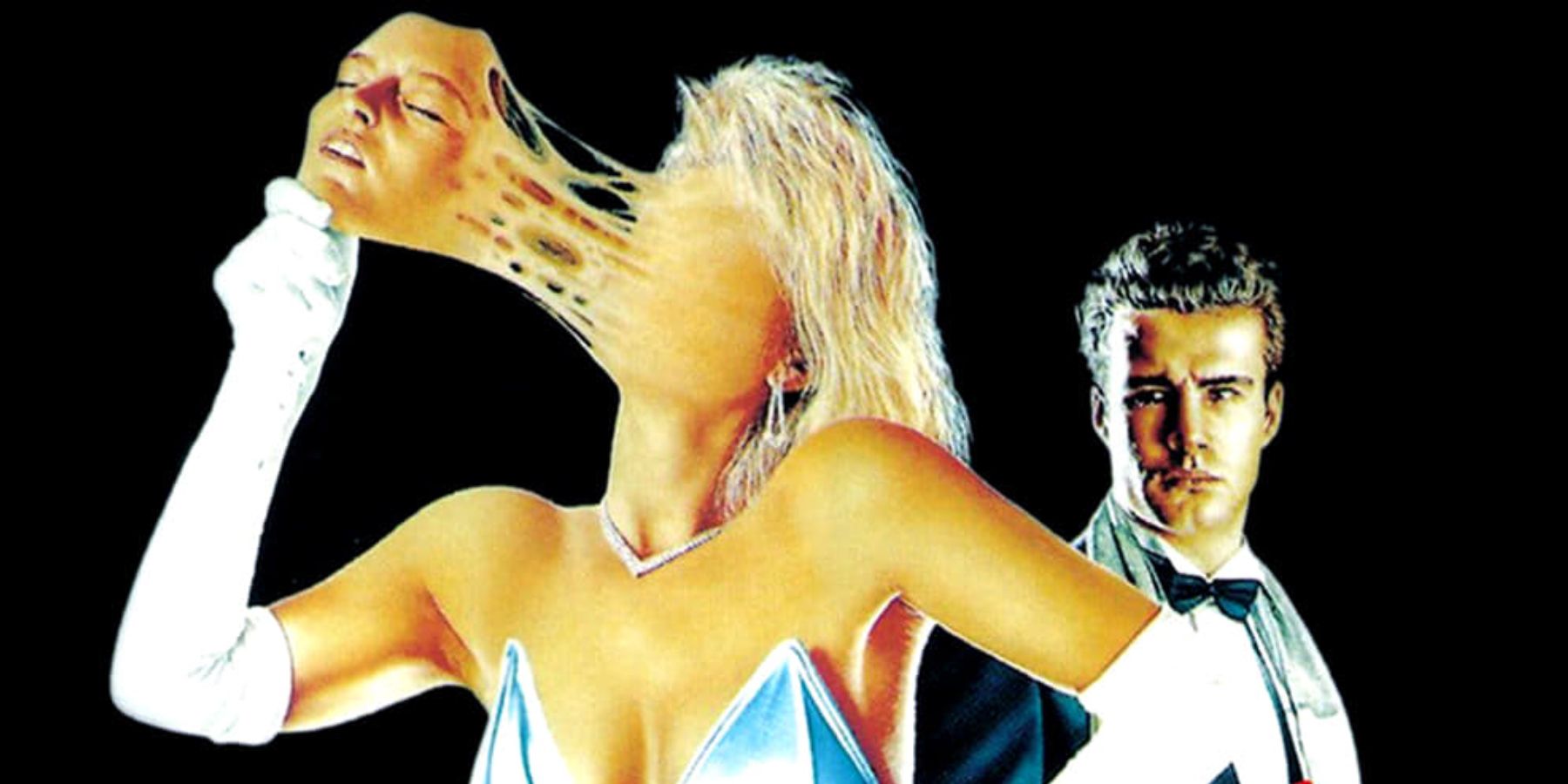While Society debuted at the Cannes Film Festival in 1989, it did not hit screens in the U.S. until 1992, and was seen as a commercial failure. Despite this, the body horror film became a cult favorite abroad, and has caught on to domestic audiences in the decades since its first release, maintaining a respectable 62% on Rotten Tomatoes, putting it within the comfort range of horror movie ratings on the platform. Directed by Brian Yuzna in his directorial debut, the film’s blend of body horror and biting class satire was unlike anything else in the genre at the time. Its surreal, stomach-churning climax remains one of the most disturbing and strangely brilliant sequences in horror history.
But beyond the latex and melting flesh, Society had a message: the elite doesn’t just rule, it consumes. In the film, Beverly Hills teenager Bill Whitney (Billy Warlock) suspects something’s not quite right with his upper-class family and their friends. As he digs deeper, he uncovers a hidden world where the wealthy quite literally merge and devour the poor in a ritualistic orgy of power and flesh. It’s a bizarre metaphor, but one that lands. The horror doesn’t just lie in the gore, either – it’s the realization that the powerful don’t just exploit others for their own gain; they rewrite reality to suit themselves. Now, decades later, that message feels sharper than ever.
The Elite Don’t Just Win in ‘Society’ – They Consume
The genius of Society lies in its ability to turn a metaphor into something you can’t look away from. It doesn’t just talk about inequality, it makes you feel it in ways only a visceral bloodbath in the horror genre can. The wealthy in the film don’t just possess more, they are fundamentally other, and their privilege is so deeply entrenched that it becomes a literal transformation of flesh. The film doesn’t just hint at social inequality…it fully weaponizes it.

Related
The Russo Brothers Almost Remade One of the Most Iconic Horror Movies Ever — Thank God It Never Happened
Now that’s a scary idea for all the wrong reasons.
In today’s world of tech billionaires, political giants, and performative luxury, Society’s horror feels almost quaint compared to the real-life grotesque nature of late-stage capitalism. That’s exactly why it deserves to be reimagined through the modern horror lens. A remake could update the film’s setting and language without losing the thematic punch. Imagine an elite class obsessed with curated digital personas, virtual control, and algorithmic influence, where a merging of bodies extends into a merger of identities and image. There’s room in this premise for horror that isn’t just physical, but psychological: a sense of self-dissolving into what the elite demand you become. It’s body horror updated for the age of social branding, and soul-for-clicks ambition.
A Cult Classic Poised for a Modern Makeover
Society is ripe for the sort of reinvention that the horror genre has been thriving in, with the landscape swimming in remakes and reboots for years now. However, few have had the underlying substance that Society offers. The film isn’t just remembered for its infamous “shunting” scene, it’s remembered because it dared to say something ugly about privilege. It had the DNA of prestige horror long before that became the status quo.
With the right creative vision, a remake could elevate the original’s ideas rather than just replicate them. A filmmaker like Brandon Cronenberg could lean into the body-as-metaphor tradition with precision, while someone like Jordan Peele could sharpen the class commentary into an even more biting cultural critique. With today’s advancements in practical and digital effects, the grotesque final act could also be even more disturbing, while still maintaining the surrealist tone that made the original turn unforgettable.
There’s also space to deepen the characters with today’s standards of character-driven narratives applied. A remake could further explore Bill’s paranoia and his sense of isolation from the people around him, all reflected in feelings many people today share when navigating systems built to exclude them. A new version could build on that emotional undercurrent, turning his unraveling into a haunting journey of self-erasure that many audience members today could resonate with.
A ‘Society’ Remake Could Be Timely and Terrifying
Remakes often rely on name recognition, but Society doesn’t need to coast on cult status alone. Its core ideas of power devouring the powerless and the rich becoming unrecognizable as humans in their hunger for more – more power, more wealth – are more timely now than when the film was first made. In a landscape crowded with remakes, Society offers something far more valuable than nostalgia – it offers a chance to revive a story whose relevance has (unfortunately) only deepened, and whose message now cuts closer to the bone than ever. Society doesn’t just deserve a remake, its premise is demanding one in the current cultural moment.

Society
Runtime
99 Minutes
Director
Brian Yuzna
Writers
Zeph E. Daniel, Rick Fry





